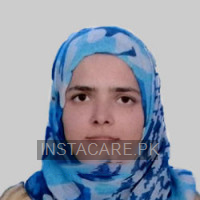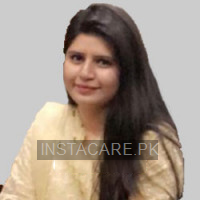Receptive Language Disorder - Symptoms, Risk factors and Treatment
Last Updated On Friday, February 13, 2026
Receptive Language Disorder in Urdu
قابل قبول زبان کی خرابی ایک ایسی حالت ہے جس میں کسی شخص کو بولی یا تحریری زبان کو سمجھنے میں دشواری ہوتی ہے۔
قابل قبول زبان کی خرابی میں مبتلا افراد کو دوسروں کی باتوں پر کارروائی کرنے میں مشکل پیش آتی ہے۔ یہ عارضہ دماغ کے مختلف لینگویج پروسیسنگ ایریاز میں شامل سمجھا جاتا ہے۔
قبول کرنے والی زبان کی خرابی کی وجہ کیا ہے؟
قابل قبول زبان کی خرابی کی صحیح وجہ معلوم نہیں ہے۔ لیکن بعض اوقات، اس کا تعلق مختلف نشوونما سے متعلق بیماریوں جیسے آٹزم، ڈاؤن سنڈروم وغیرہ سے بھی ہو سکتا ہے۔ زیادہ تر زبانی عارضے ترقی پذیر ہوتے ہیں، لیکن یہ دماغی چوٹ جیسے فالج کی وجہ سے زندگی میں بعد میں ہو سکتے ہیں۔ جب یہ بعد میں زندگی میں نشوونما پاتا ہے، تو اسے aphasia کے نام سے بھی جانا جاتا ہے۔
Receptive Language Disorder in English
Receptive language disorder is a condition in which a person has difficulty understanding spoken or written language.
People with receptive language disorder have a hard time processing what others say. This disorder is thought to involve different language processing areas of the brain.
What causes a receptive language disorder?
The exact cause of receptive language disorder is unknown. But sometimes, it can be associated with different developmental diseases such as autism, down syndrome, etc. Mostly, receptive language disorders are developmental, but they can occur later in life due to brain injuries such as stroke. When it develops later in life, it is also known as aphasia.
Problems with communication:
Individuals with receptive language disorder have a hard time communicating with others. They do not get what others say. That can cause them to misunderstand what other people say and their jokes. As a result, they become socially withdrawn. It can be upsetting and may cause frustration to the individual or even depression.
Does receptive language disorder have something to do with low intelligence?
Receptive language disorder is not due to a low intelligence level. It is just a problem with processing language. Such children may not be able to demonstrate their intellectual capabilities, but they may be just as smart as other children in their age group.
Is receptive language disorder due to hearing loss?
Receptive language disorder is not due to the inability to hear and is a medical condition in which an individual can’t process the language right.
Problems with expressing language:
Sometimes, receptive language disorder may be associated with an expressive language disorder. In expressive language disorder, an individual cannot properly join words and thoughts to express themselves as they want to. Due to this, they can’t properly express themselves and their intelligence. They may struggle with communication among their class fellows and colleagues, and therefore, they may withdraw from social interaction.
Signs of receptive language disorder:
The signs of receptive language disorder start to appear by a young age, and they may include:
- Difficulty following commands
- Difficulty in answering questions
- Not paying attention to what others are saying
- Asking people to repeat what they are saying
- Being socially withdrawn and not talking to others
- Inability to participate in group discussions
- Trouble in learning new words
- Saying sentences that don’t make any sense
- Trouble understanding what others are saying
- Difficulty in understanding jokes
- Feeling sad and upset due to communication gap
Diagnosis of receptive language disorder:
A speech-language pathologist can diagnose receptive language disorder. If you notice your child shows the above-mentioned signs or has difficulty speaking, or started to speak later than children of their age group, you should consult a speech-language pathologist.
Treatment of receptive language disorder:
After a receptive language disorder has been diagnosed by a speech-language pathologist, the treatment usually involves language therapy sessions, helping a child with their studies, helping them form connections between letters, words, and sounds.
In language therapy, they may help a child to learn new vocabulary by rehearsing again and again and properly using that vocabulary. Practicing using language in different social situations can help the child too.
Conclusion:
Receptive language disorder can be a frustrating and upsetting condition for both parents and the child, but it has nothing to do with intelligence. Sometimes, individuals with a receptive language disorder can have expressive language disorder too. Early detection and treatment of receptive language disorder can help bridge communication and learning gaps.




